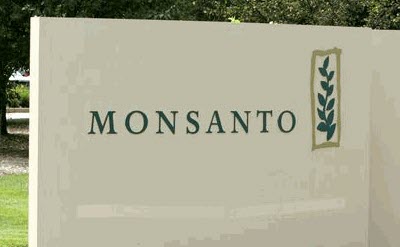Ticking time bomb. End of modern medicine. Urgent danger. This is how the world sees the problem of antibiotic resistance, but in the United States, in part due to politics of the day, with abundant backing from lobbyists, crucial regulations are missing despite the scientific alarms.
|
|
|||
|
Many believe that the new FDA guidelines will likely fail to change how antibiotics are used in food animals and will not stem the public health crisis of increasing antibiotic resistance. Even if horrific images and stories about CAFOs do not tug at your heart-strings, and you close your eyes at the externalized costs of CAFOs and believe that veganism is something reserved for denizens of Los Angeles, New York and Portland, it is no longer possible to ignore how what happens out of sight in CAFOs impacts human health. Cholesterol decreasing juice, anti-cancer green tea, and cherries as James-Bond agents to neutralize cancer — believable or not? FDA’s confusing food labeling rules are criticized for allowing many companies to make misleading claims on food labels. One of the causes of antibiotic resistance in humans is the overuse of antibiotics on industrial animal farms. Despite the urgent public health crisis, neither the FDA nor lawmakers have stemmed the overuse of such important medicines for purposes of growth and disease prevention, not treatment. Last week House Rep. Henry Waxman, the ranking Democrat on the Energy and Commerce committee, announced plans to introduce a new animal antibiotic use legislation. Monsanto’s genetically modified soybeans to be used for cooking oil containing lower levels of saturated fats and higher levels monounsaturated fats were approved last year by U.S. regulators. Yet, while Monsanto prepares for product launch, important safety questions remain unanswered. The FDA took long-overdue steps towards curbing the overuse of antibiotics in farm animals aimed to preserve effectiveness of antibiotics. Unfortunately, the measures remain voluntary and industry compliance remains to be seen. Internal investigators found significant weaknesses in FDA’s monitoring of State agencies’ food inspections. The finding raises further questions about FDA’s effectiveness in ensuring the safety of the nation’s food supply. If approved by the FDA, a new bill introduced in California, known as The Consumers Right To Know Act, would require labeling on all genetically engineered salmon sold in California. New FDA data shows that almost 80% of all antibiotics sold in 2009 were reserved for animal farming. Part two of our series on antibiotic overuse in healthy farm animals examines the response from the FDA and the proposed legislation. With Non GMO Month around the corner, let’s return to the basics: why avoid GMOs? Among concerns, human and animal health, environmental impact, morals and ethics, socioeconomic issues, and food labeling. The Food and Drug Administration has preliminarily determined that a genetically modified salmon developed by AquaBounty Technologies is safe for human consumption but many questions about the safety of GE salmon persist. The United States government consistently promotes its regulatory framework for genetically engineered organisms as comprehensive and strict. Is this a public relations maneuver, wishful thinking or the story of the emperor without clothes? The FDA’s regulatory approach thus focuses on the end product, rather than the process used to create genetically modified foods. In short, the FDA regards GM products as “generally regarded as safe,” (“GRAS”) and does not subject GM food products to food additive review. The Food and Drug Administration is the lead regulatory agency of food articles. It is in charge of ensuring the safety and effectiveness of food (other than meat), food additives, medical devices, drugs, veterinary drugs, cosmetics and genetically engineered food. Presently, it is questionable whether the genetically engineered foods are adequately controlled and/or regulated under U.S. law. There is no single federal statute or federal agency that governs the subject matter. Three federal agencies are primarily responsible for the regulation of genetically engineered foods - the Food and Drug Administration (FDA), the Environmental Protection Agency (EPA), and the U.S. Department of Agriculture (USDA). |
|||
|
 |
|||












